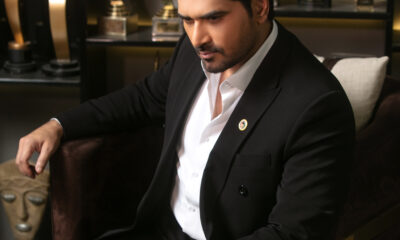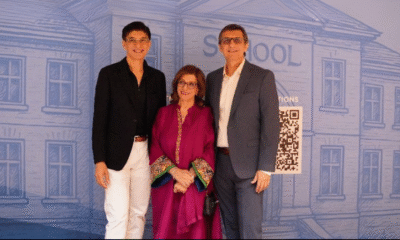Entertainment
Arts Council Pays Tribute to Sultana Siddiqui
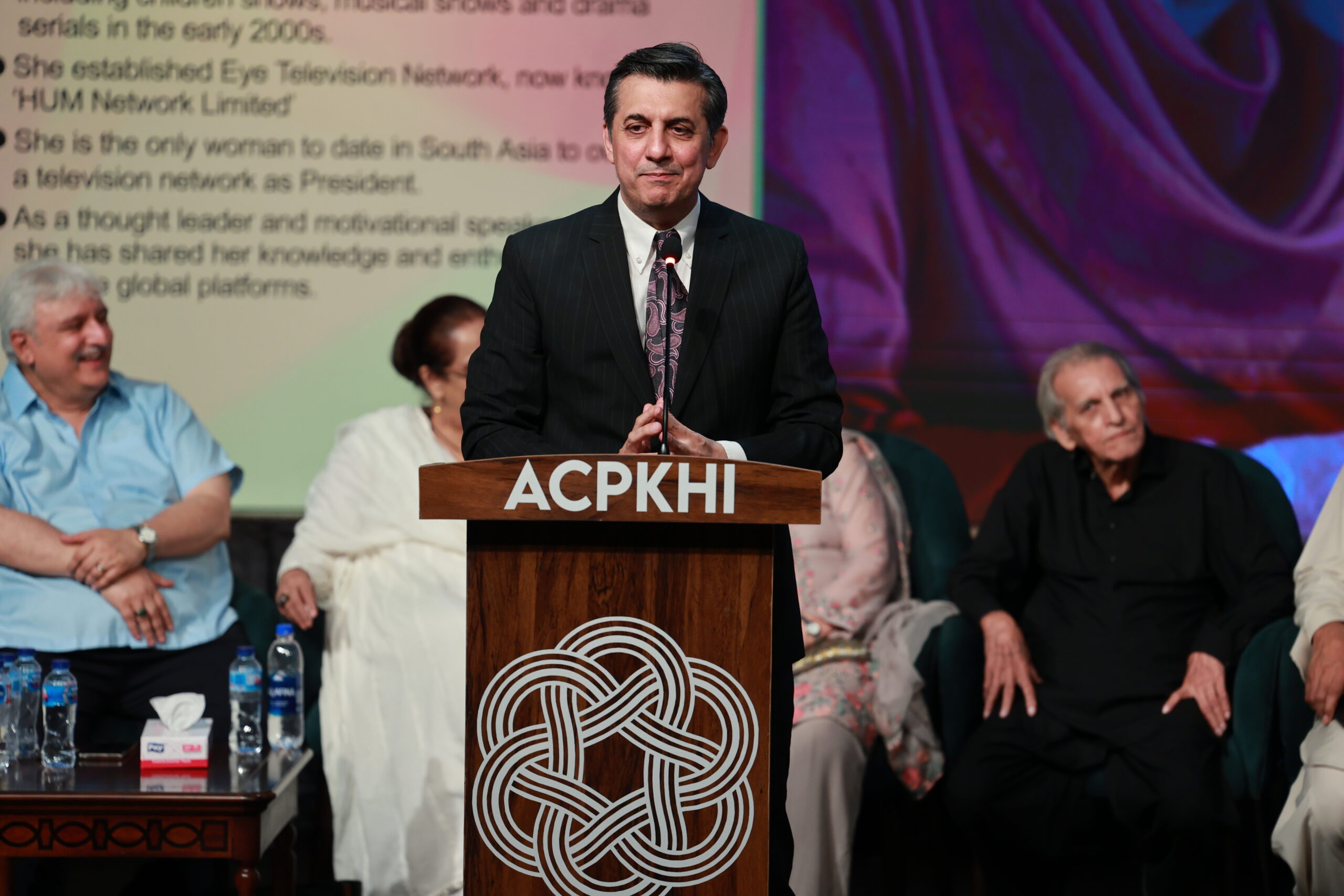
Arts Council of Pakistan, Karachi’s Special Committee hosted a scintillating tribute to honour recipient Sitara-i-Imtiaz and Pride of Performance, Sultana Siddiqui, President HUM Network, for her 50 years of contribution to the entertainment industry. Indeed, a woman of substance, who through sheer hard work and intelligence has set an example for other women, exemplifying that nothing is impossible, even in adversity, if they set their mind to it. Her unwavering focus made her the first woman owner of a channel in South Asia.
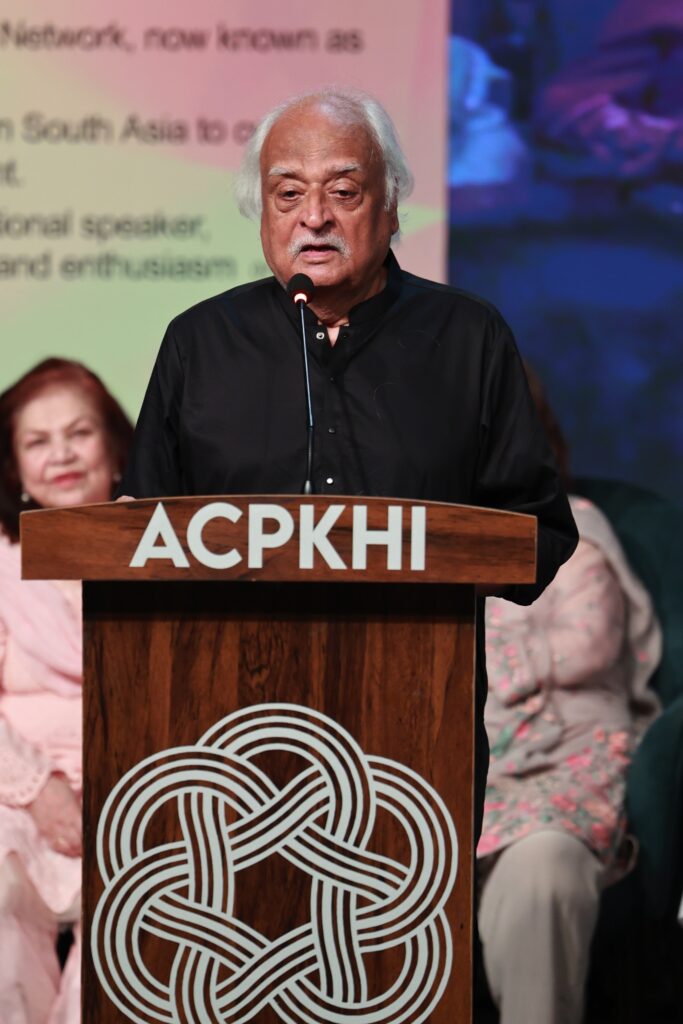
The ceremony, which was presented by Iqbal Lateef, began with a show reel on Sultana Siddiqui’s life. The speakers, the who’s who of society, spoke on the different and numerous aspects of her life. President Arts Council of Pakistan, Karachi, Muhammad Ahmed Shah thanked the attendees and praised Sultana Siddiqui’s tireless work adding that she had been paid a tribute by three generations at the event including leading actors and directors.
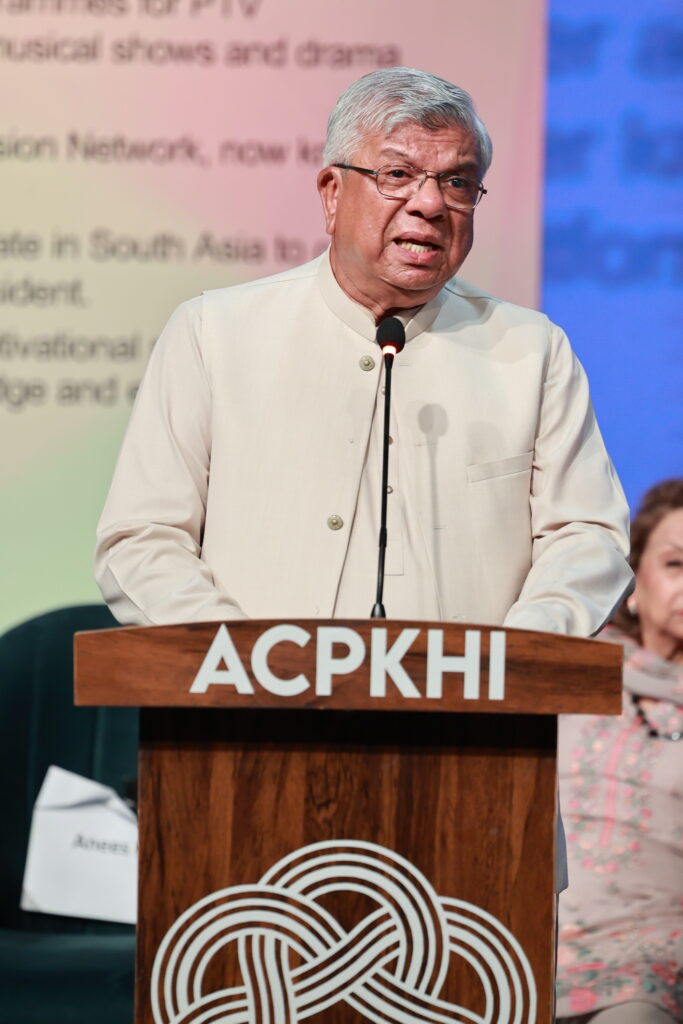
Hameed Haroon hailed Sultana Siddiqui as a role model, acknowledging her rare blend of intellect and drive that has propelled her to greatness, setting a shining example for women in Pakistani society and beyond. “A major conundrum of creative energy and destination is what has built Sultana into a strong figure she’s being viewed as today. She has worked from the bottom of the ladder with unique strength.”
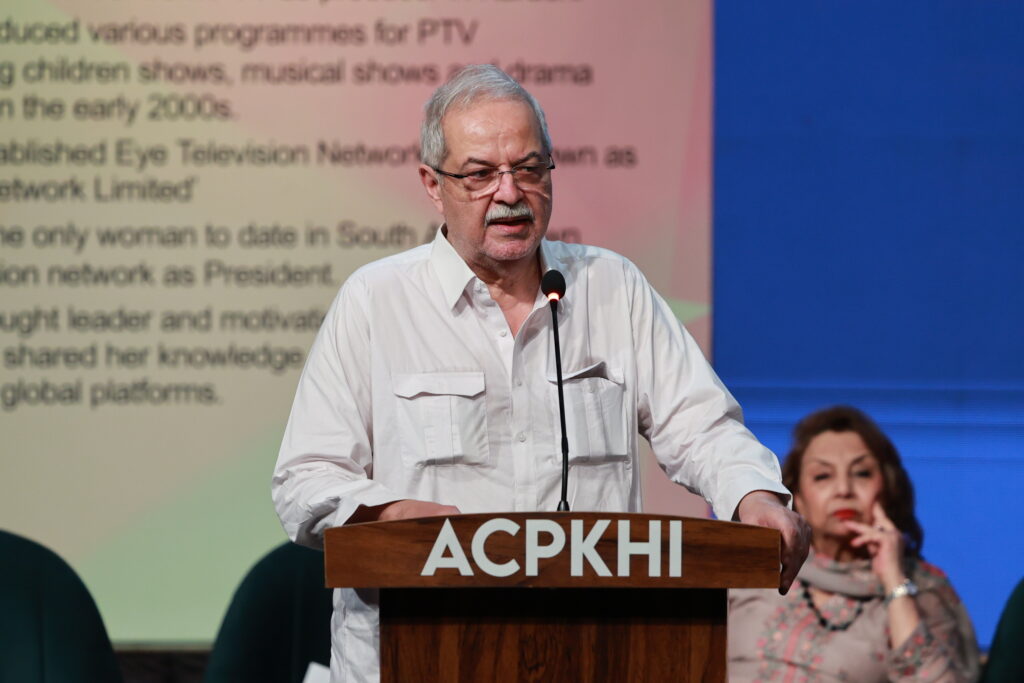
Javed Jabbar admired her unwavering character, calling her a trailblazer who exemplified grace in the face of challenges. “I highly respect Sultana Siddiqui for her courage in the face of life’s challenges. She’s been a trailblazer, setting an inspiring example for others to follow.”
Arif Habib lauded Sultana Siddiqui as a visionary who has not only revolutionized the entertainment industry but also instilled the same ethos of excellence in her children. “Sultana herself is a brand who has made entertainment commercially viable, generating profitable ventures for all stakeholders involved.”
“A major conundrum of creative energy and destination is what has built Sultana into a strong figure she’s being viewed as today. She has worked from the bottom of the ladder with unique strength.”
Anwar Maqsood remarked on the origins of the name ‘Hum,’ referencing Ghalib’s use of the word in his poetry and humorously attributing it to Momina, Duraid and Sultana’s combined efforts.
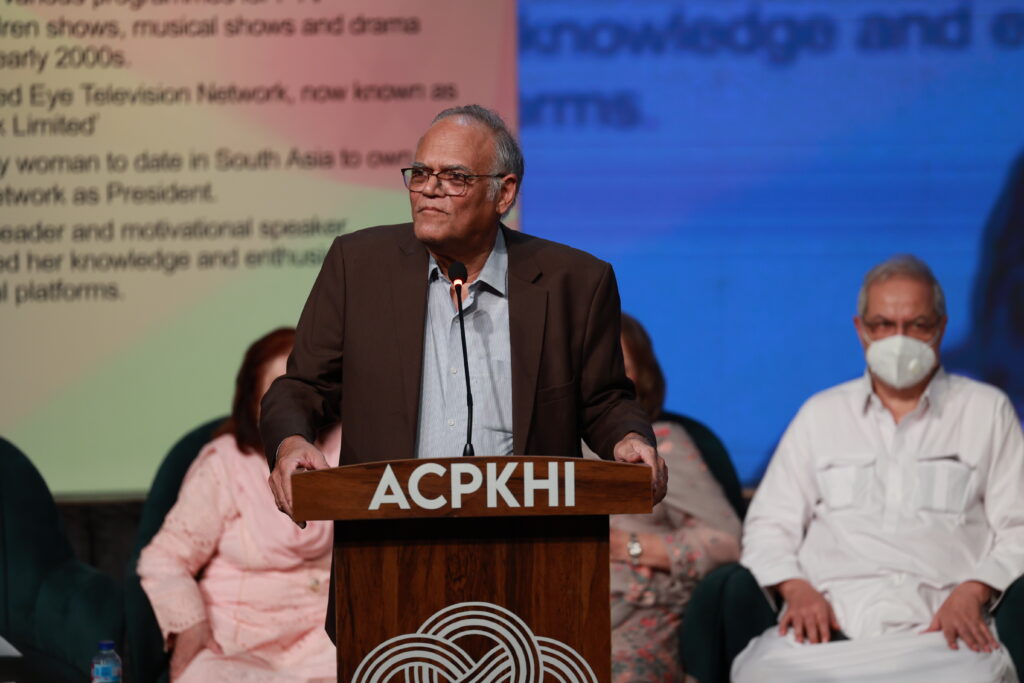
Khushbakht Shujaat said, “Sultana is a woman with genuine sincerity. I have never heard her speak ill of anyone. We, as women, know that when a woman reaches a high position she has endured many hardships to get there, and Sultana is one such example.”
Recalling memories at Zubaida College, Mahtab Akbar Rashdi reminisced about Sultana Siddiqui’s resilience, portraying her as a fighter who always emerged victorious in the face of adversity. “I was once asked to write about her and I titled it as ‘The Fighter, The Conqueror’ as she embodies strength and success in every endeavour.”
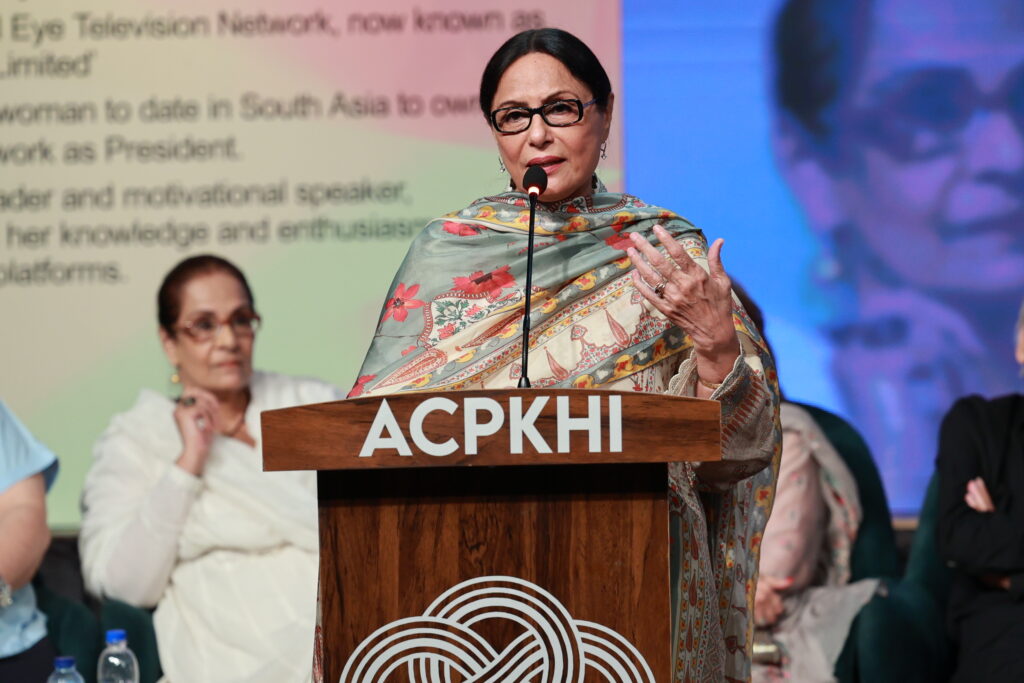
Anis Haroon reminisced about her impactful early work at PTV, highlighting her work ethic and appreciating her instrumental role in shaping HUM Network into the powerhouse it is today. “Sultana hasn’t made HUM Network easily, she has truly worked hard to establish its presence everywhere.”
Noorul Huda Shah reflected on Sultana Siddiqui’s role as a mentor and friend, comparing her friendship to a sheltering tree. “From her, I have learned how to be a mother-in-law, how to raise children as a single mother, and how to be a person of great character.”
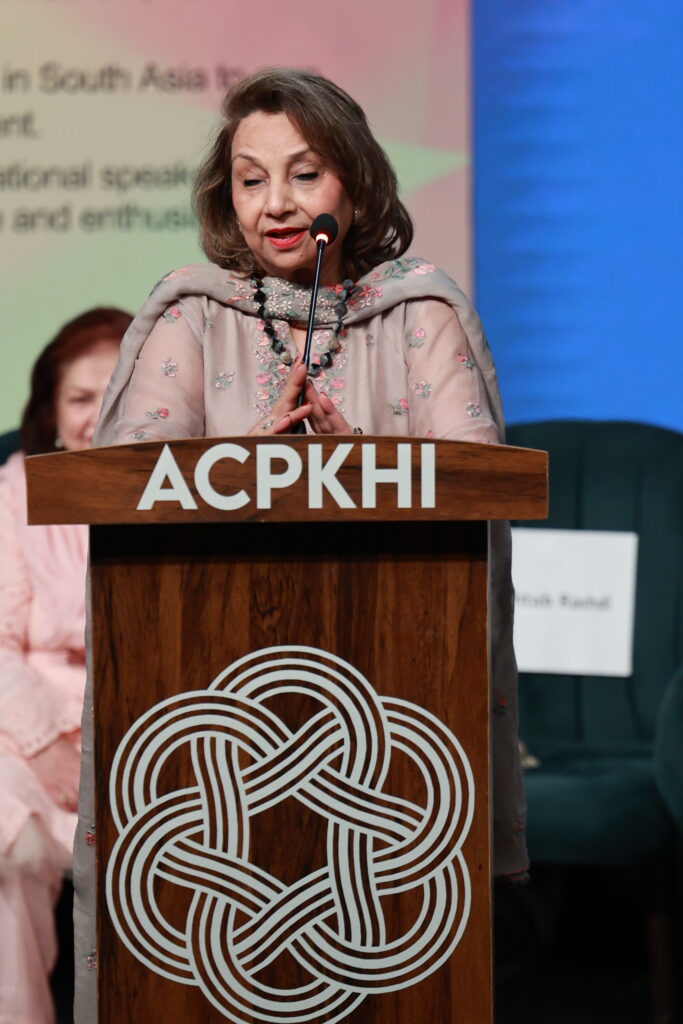
Bushra Ansari praised Sultana Siddiqui’s friendship saying that she knew its real meaning. “I think people like Sultana Siddiqui are exceptional. She has set an example for us with such an incredible career. It’s my suggestion that roads and buildings should be named after her and this tribute should be given to her during her lifetime.”
“Saying anything for Sultana Siddiqui is like showing a lamp to the sun,” expressed Sabahat Rafiq. “I may be very inadequate to say anything in praise of her. I have seen her on the journey of perfection. Whatever she does in life, I have seen that she works with full passion, and full quest for perfection. The most beautiful thing I have seen about her is that she is a complete mother. In life, you meet a lot of people whom you feel they existed in you all along. When I met Sultana Siddiqui for the first time, I felt that she was always present in me.”
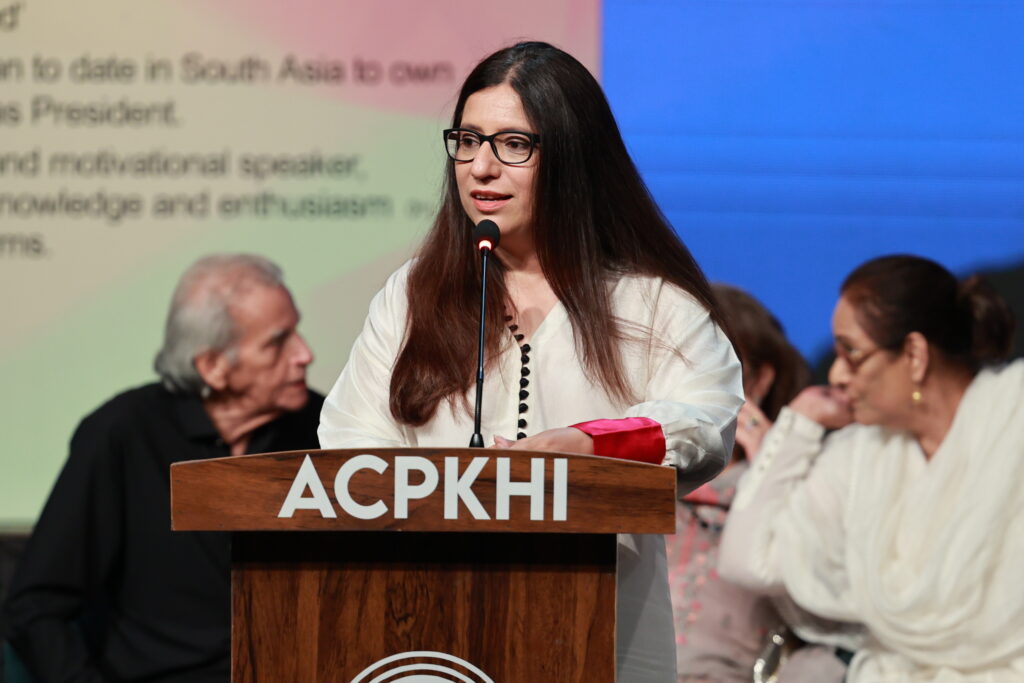
Mahira Khan said that Sultana Apa achieved all goals whatever she set her mind to. “I have never seen anyone who named their businesses after their daughters-in-law, which itself shows that she is a feminist. I have always seen Sultana Apa happy for her loved ones,” she added.
Masarrat Misbah was of the opinion that all the awards such as Pride of Performance and Sitara Imtiaz are very few seeing the kind of work Sultana Siddiqui has been doing. “She should be awarded a Nobel Prize,” she emphasized.
“From her, I have learned how to be a mother-in-law, how to raise children as a single mother, and how to be a person of great character,” said Noorul Huda Shah
According to Tina Sani, “It’s difficult to keep yourself grounded when you have achieved so much success in life. I have never seen anyone who never changed as a friend. I always knew I could count on Sultana Siddiqui.”
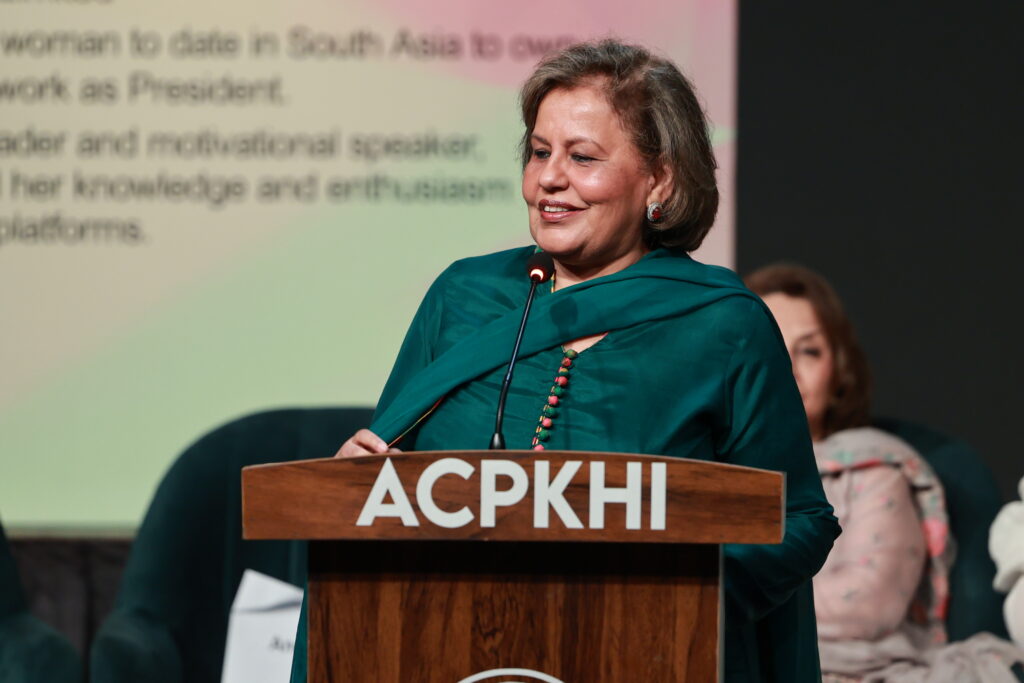
Humayun Saeed expressed gratitude to Ms Siddiqui’s pivotal role in his career and the success of their dramas. Zeba Bakhtiyar shared, “I think her biggest quality is that even now, after achieving so much which everyone has said, the biggest achievement is to be so approachable that anyone can visit her office and talk their heart out. Moreover, I have never seen her getting angry with anyone.” Shahzeb Khanzada appreciated the work that she has done, saying whether it is about children or it is about being a feminist, it has not been an easy job in Pakistan; however, Sultana Siddiqui has done it.
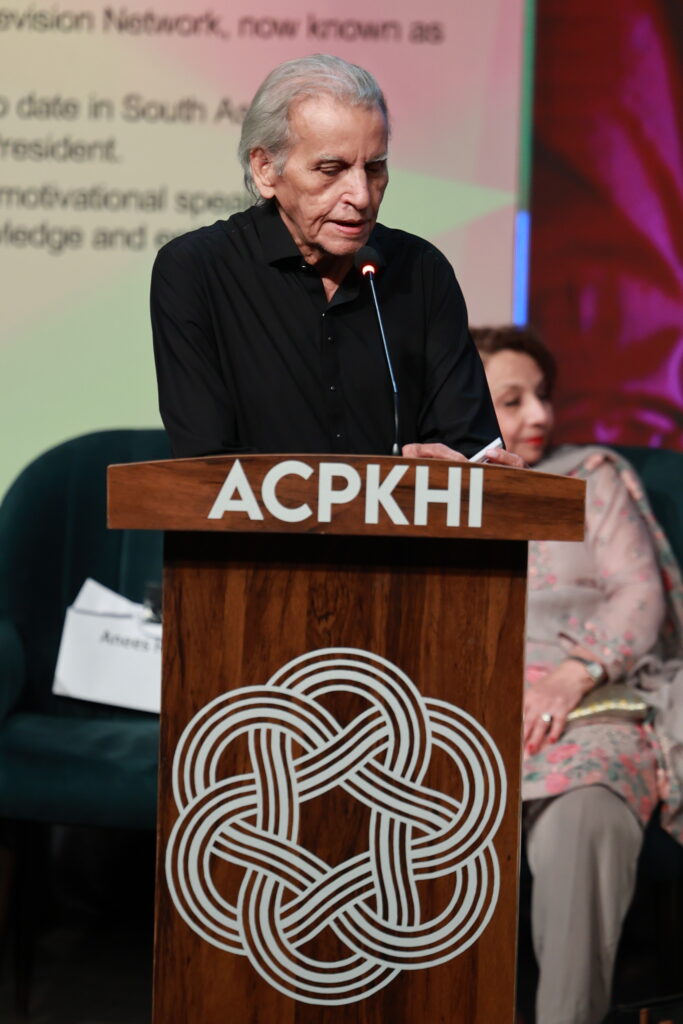
Adnan Siddiqui shared that if his mother would have been alive today, she would have been like Sultana Siddiqui. He also praised her unprecedented achievements. Asif Raza Mir expressed gratitude for her mentorship and guidance, recognizing her significant role in shaping the success of the younger generation and paving the way for a brighter future in the industry. Sanam Saeed celebrated Sultana Siddiqui as an inspiration and mentor, emphasizing the profound impact she has had on her career and her life.
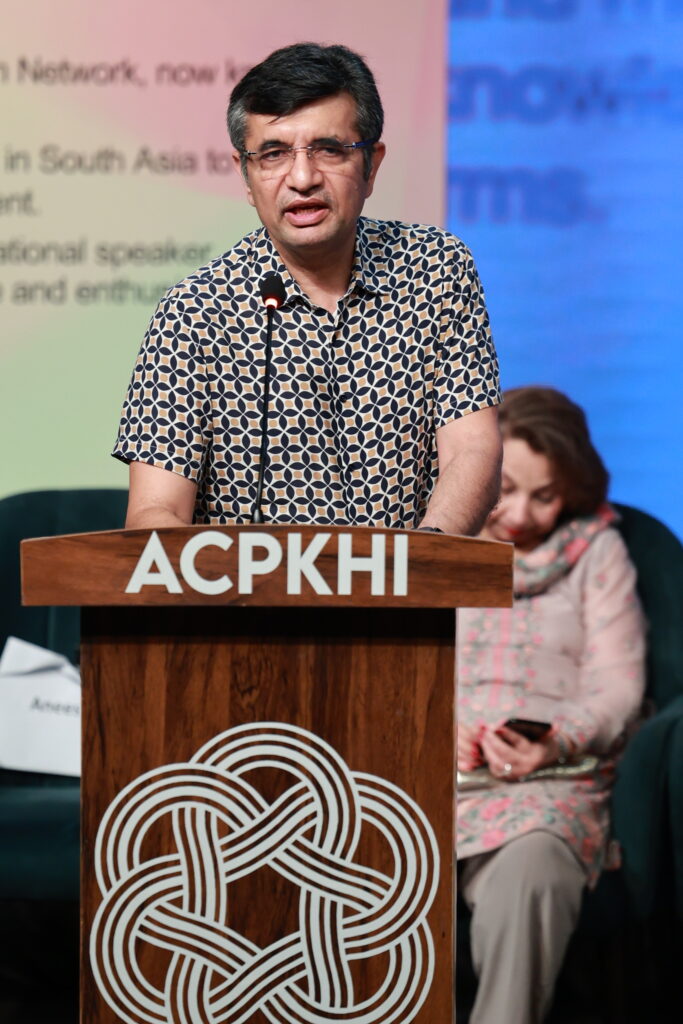
Javed Sheikh shared that such programmes should be organized so that the world knows about Sultana Siddiqui and her work because she deserves it. Zaheer Khan said, “When it comes to TV, it’s not just about the actors but the real game is the producer, and Sultana Siddiqui kept us, the producers alive.” Khalid Anam expressed his gratitude for working with Sultana Siddiqui, and said, “Our history has many Sultans but Sultana is the one and only!” Aijaz Aslam noted her balanced approach to personal and professional life. “Sultana Siddiqui has always been a visionary and a trendsetter in the industry,” he said.
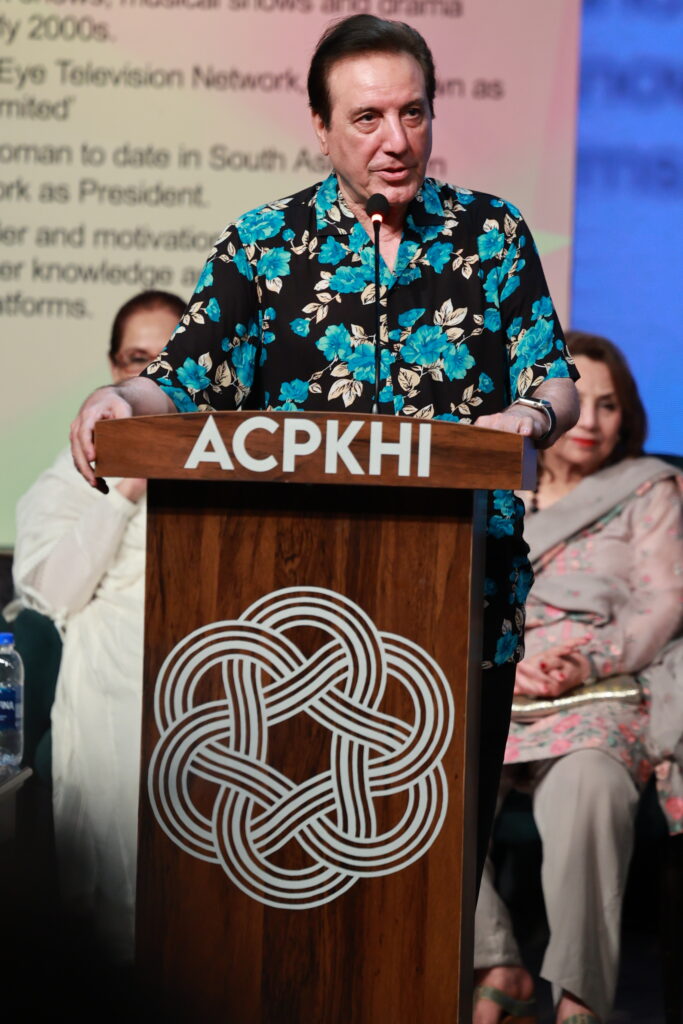
Duraid Qureshi paid homage to his mother’s nurturing influence, saying “During our 19 years together building HUM, Sultana Siddiqui’s Midas Touch has transformed every person she touches into gold. Her support has shaped not only artists and directors but her entire family as well.” While Shunaid Qureshi shared, “My bond with Sultana Siddiqui is beyond words. She’s a woman of priorities and has excelled as both a mother and an entrepreneur, inspiring all of us with her true dedication.” Momina attributed her success in the media industry to her mother-in-law’s mentorship and positive energy, sharing that her media journey was guided by her influence. Moomal said, “My mother-in-law encouraged me whole-heartedly to open my production house. Mothers are the ones who hold families together. She’s an inspiration that way to all of us because in this day and age when family bonding and values have become a challenge, people admire us for being grounded and united. The credit for that goes to Sultana Siddiqui solely.”
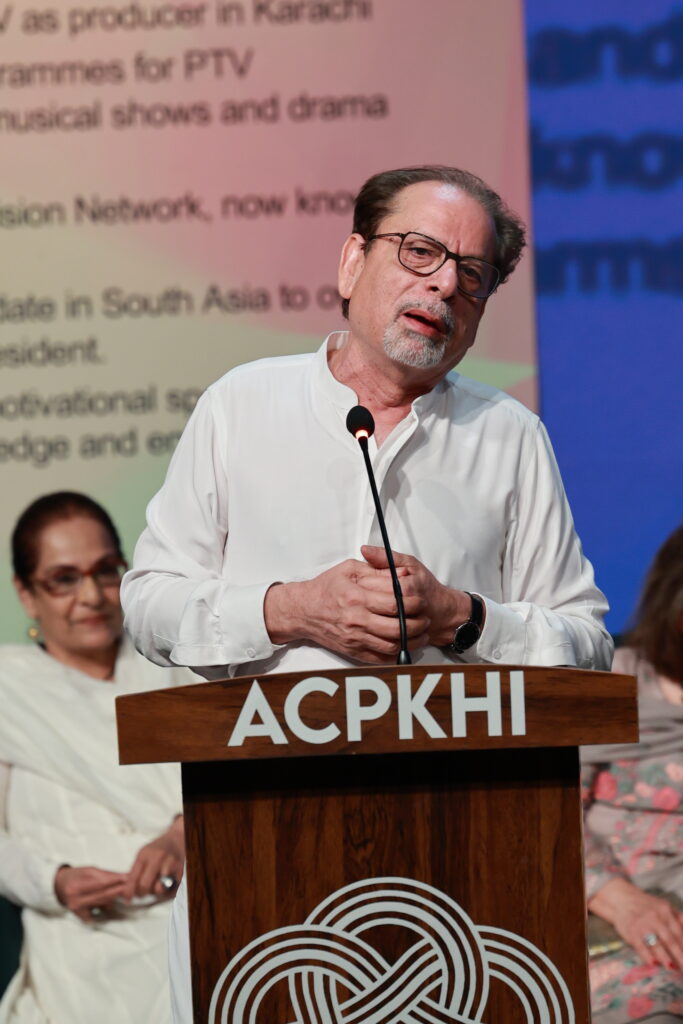
At the end of the programme, Sultana Siddiqui thanked the Arts Council and Ahmed Shah for the tribute, expressing gratitude for the recognition that was given during her lifetime. She said, “I am happy hearing such sincere words from these speakers and today angels will also write my good deeds hearing them. Due to this tribute, I have realized my worth.”
Arts Council of Pakistan Karachi presented Sultana Siddiqui with a Lifetime Achievement Award on the occasion.

